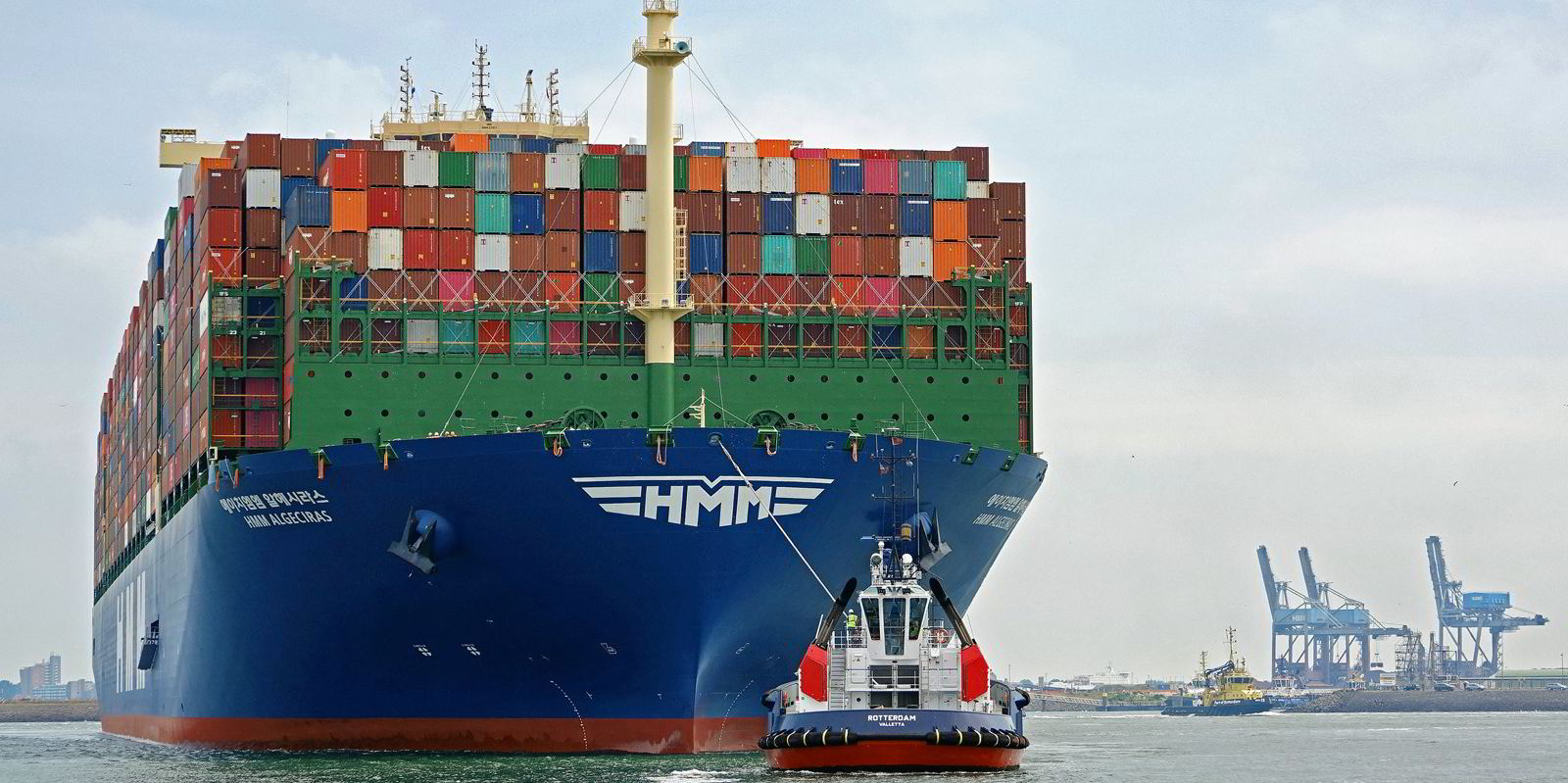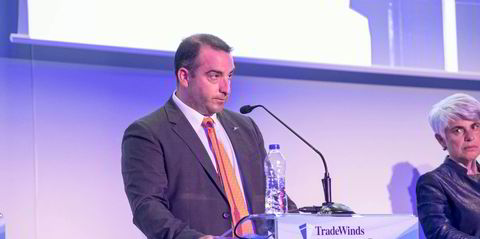Adding an extra port outside the European Union or sailing first to a neighbouring non-EU terminal could be significantly financially beneficial in evading the EU emissions trading system (ETS), a report commissioned for the Port of Rotterdam shows.
The report, produced by Dutch analyst CE Delft, concludes that evasive behaviour is realistic, even when the ETS price is relatively low compared to the extra costs of a port call, fuel prices and operational costs in a majority of cases.
Delft found 18 potential scenarios in which adding an extra port call at Felixstowe in the UK to a China-Europe container route would be cost-efficient for operators at an average ETS price of €67 ($73) per tonne.
Shifting a call from Algeciras in Spain to Tangier in Morocco would amount to a profitable evasion of the EU ETS in 27 of 36 scenarios it studied.
In addition to adding a port call outside the EU or changing the order so a non-EU port was called first, the analysts considered included removing EU ports from a schedule and feedering from a non-EU port.
The likelihood of avoidance having a net benefit for a shipping company is larger when the price of emission allowances is higher and the emissions on the last voyage to, or first from, an EU port are higher.
The same is true if the port, operational, charter and container handling costs, or that of transhipment, are lower.
Implementing similar market-based measures at the IMO level or in countries close to the EU would reduce the risks of evasion, Delft said.
The UK government said today it has launched a consultation on including ships in its ETS by the mid-2020s, and that it is open to possibly linking a UK ETS with an international scheme.
In the example of adding a call in Felixstowe, the EU ETS costs for the 20,568-teu Maastricht Maersk (built 2019) operating on an East Asia to NorthWest Europe service are lowered by €132,000 to €660,000 for one round trip, depending on the ETS price, Delft said.
It would be likely that evasion would be profitable if the ETS cost was high. But higher operational, fuel, charter and port costs would likely exceed the benefit if the ETS price was low
Making Tangier rather than Algeciras the first port of a Yantian service for the 23,964 HMM Algeciras (built 2020) “could mean a significant cost saving,” the report added, with ETS costs for a round trip ranging between €400, 000 to €1.8m, depending on the price.
Replacing the Spanish call with the Moroccan port would also “clearly outweigh the extra costs” of feedering , it said, unless more than 1,000 containers need to be transhipped to Algeciras.
When making Felixstowe the first call for the 7,114-teu MSC Santa Rosa (built 2011) on a North America to Europe route was analysed, Delft said the ETS costs for a round trip would be between €98,000 and €219, 000 depending on the ETS price.
“Of these costs, 47% are from the long journey between New York and Bremerhaven. Avoiding EU ETS therefore could be a significant cost saving,” it said.






